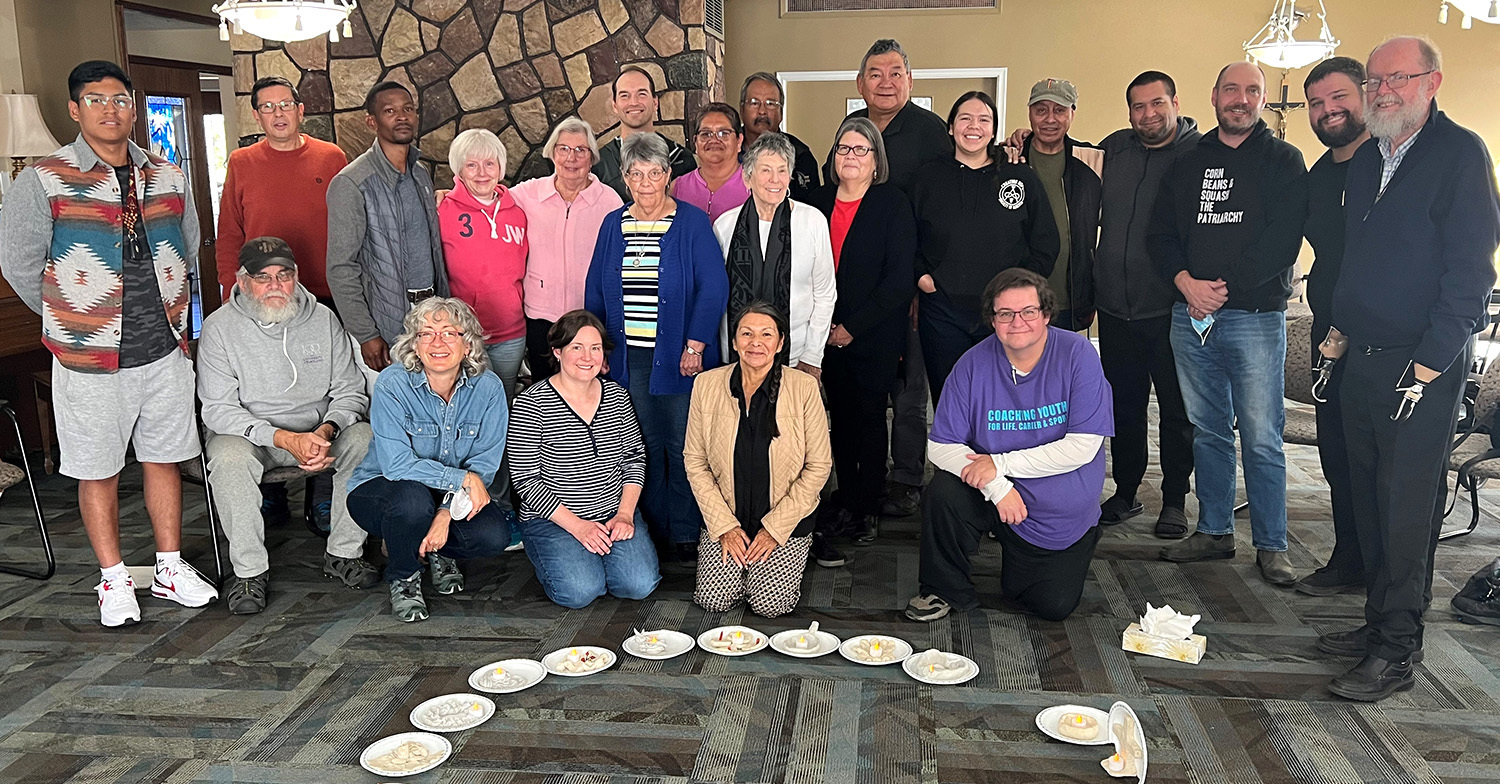
A brief time to come away, reflect, and be heard proved healing for 20 people gathered for a Healing of Memories Workshop September 20-22, 2022. The workshop was led by a team of six facilitators at Star of the North Retreat Centre in St. Albert. Healing of Memories (HoM) is based on the principle that “every person has a story to tell, and every story needs a listener.” The intentionally designed structure and careful facilitation of each workshop, create a safe space for telling and listening. Participants commented that it was remarkable and even surprising how seamlessly they were able to connect with the group and with their own story, and to come away after only two days with a sense of movement in their personal journey. HoM doesn’t promise complete healing and resolution of the pain people experience in their lives, but rather, the opportunity to take a step forward.
Fr. Michael Lapsley SSM began developing HoM workshops more than 25 years ago to run “in parallel to South Africa’s Truth and Reconciliation Commission (1996-1997).” (healing-memories.org) The workshops created opportunities for people from all backgrounds to share their personal experience of apartheid and to be heard with compassion. Since those days, the workshops have been found relevant and helpful in many places around the world. They have a particular resonance with the work of reconciliation between Indigenous and Settler peoples in Canada. For some participants in the September workshop, pain connected to colonization was front and center. For some, personal and family issues surfaced. In the philosophy of HoM, however, “pain is pain” and all pain needs release.
HoM workshops are designed to provide safe spaces where people can let go of poisonous memories in order to break the cycle of victims becoming those who victimise others. Workshops are a place where people can consider whether the memories they hold onto are redemptive or destructive.
“Those who’ve had horrible things done to them have every reason to hate, to be filled with anger, to be bitter, to want revenge. But in the end those things do not destroy our enemies. They destroy us,” says Fr. Lapsley.
He knows these truths personally. When he was exiled from South Africa because of his work with the anti-apartheid liberation movement in the 1970s and 80s, he came to live in Zimbabwe. There, upon returning home from an international speaking engagement in 1990, he opened a parcel containing a letter-bomb. The blast claimed his hands and one eye, and severely impaired his hearing. A flood of support from around the world, especially from Canadian school children whom he had visited just before the explosion, kept him going.
During the 65th Synod in September 2017, then Bishop Jane Alexander installed Fr. Lapsley as Honorary Canon for Healing and Reconciliation at All Saints’ Cathedral. The two friends had met at an international peace and reconciliation conference in South Korea. He was invited by Bishop Jane to give the homily address at the 66th Synod and has led several workshops and public speaking engagements in the Edmonton diocese. He has also mentored a team of facilitators in Edmonton diocese to carry on the work of HoM locally. Fr. Lapsley and his personal assistant Philani Dlamini joined facilitators the Rev. Stephanie London, the Ven. Travis Enright, the Rev. Nick Trussell, and the Rev. Quinn Strikwerda at the September 2022 workshop.
In the immediate future, the Edmonton team would like to increase its leadership capacity in order to follow up with relationships begun over the past few years. For example, the team has contacts through Inner City Pastoral Ministry (ICPM) and Bent Arrow Traditional Healing Society in Edmonton. The team would also like to support Healing of Memories initiatives at James Smith Cree Nation, whose members experienced severe trauma this past summer; and at Frog Lake First Nation, where the Church of the Nativity parish is growing under the leadership of lay-reader-in-charge Fred Matthews.
Lead facilitator in Edmonton diocese, the Ven. Travis Enright, says, “We want Healing of Memories is to be rooted into the fabric of healing ministries and reconciliation for the whole diocese. It’s a pattern that we will use to engage the work healing and reconciliation, especially with those who are marginalized in our society, whether with low income or experiencing poverty, those in prison, or the LGBTQ2SIA+ community. So, the future of HoM is to allow people to share in a healing journey and identify the diocese as the centre of that healing.”





